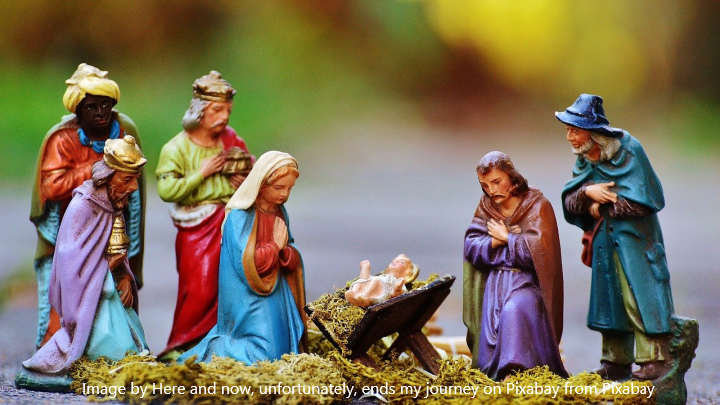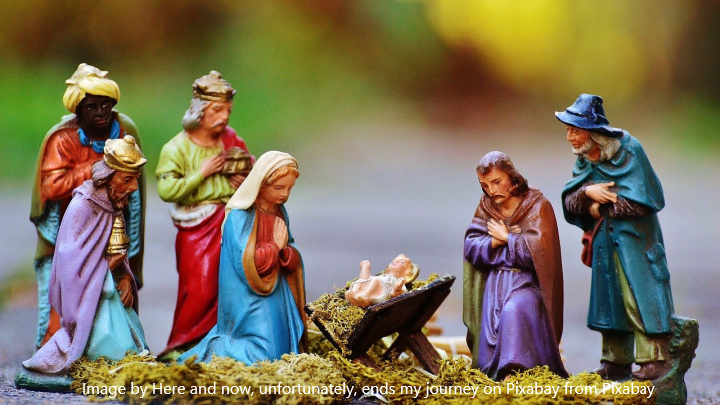I recently had the opportunity to be around some young children. There’s nothing like a child to catch a glimpse of the meaning of Christmas. Why? Because children believe in magic and miracles. They believe that things are possible even if they aren’t logical. There’s something about the Christmas season that awakens a child’s sense of wonder and awe and mystery.
Children believe that almost anything is possible – that they really could have a pony, even if they live in an inner-city apartment, or they could get a dog or cat for Christmas even though everyone else in the house is deathly allergic to animal dander, or that a pet penguin just might wake them up on Christmas morning or that a new baby brother or sister might show up under the tree.
Of course, we adults are more civilized. We have our feet firmly planted on the ground. We’ve figured out what is possible and what is not. We know what is reasonable and what is not. We have a sense of what can be done and what cannot be done.
Philosophically speaking, there may be truth in both beliefs … not because they are objectively true, but because we will live into their truth. If we don’t expect much from life, if we are not looking for newness, if we aren’t ready for the in-breaking of God into the world and into our lives, then we just may miss the miracle of God being born into the world and into our lives.
The Christmas story states unequivocally that we are a God-visited planet and a God-visited people. The gospel of John puts it quite succinctly: The Word (which was with God and who was God) became flesh and dwelt among us. Through Jesus, God becomes incarnate in human existence. Beyond such a surprising action on God’s behalf, Jesus shared the good news that God cares about each person, that God can forgive any sin, that God will accept any person and that God offers the power of the Holy Spirit to bring newness to individual lives and open up new possibilities and new futures.
If we are to believe the truth of the Incarnation, then we must move beyond a belief that the universe is closed, and that we are left alone in the cosmos. The story of Christmas tells us that God is willing to break into human reality.
This is exactly what the Christmas story tells us. It tells us that despite what we think we know about this world and about what is possible, there is a God who is above this world and does that which is far beyond our definition of what is possible. What occurs in Bethlehem is that the eternal, omnipotent God comes down to dwell with human beings as one of us. God does not remain aloof from creation, but becomes a part of the created order. At Christmas we recognize that with God, all things are possible: there is no situation so bleak that God will not enter in; there is no person so seemingly unimportant that God does not care about them. The invitation to join the celebration of Jesus the Christ was given to the royal Magi or Wise men as well as the lowly shepherds.
Ultimately, the Incarnation leads us to hope. If God can and will become human, then there is no limit to what God can and will do for us. As the Apostle Paul reminds us, God “is able to do exceedingly abundantly above all that we ask or think, according to the power that works in us” (Ephesians 3:20). I pray that you will live with openness and that you will experience the goodness of our Creator, Redeemer and Sustainer.
Merry Christmas.
If you would like to view past editions of Moments with Mike, follow this link: https://corridordistrictnc.org/category/from-the-ds/


